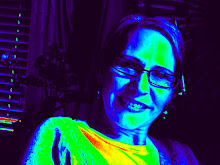The following passage is from a book called Touching Enlightenment: Finding Realization in the Body, by Reginald A. Ray. (Chapter 3, in its entirety)
"In the Buddhist past, when questions have arisen about the authenticity of institutionalized, conventionalized Buddhist organizations, politics, beliefs, and practices, practitioners have retired into the "forest" (skt
"Within Indian culture, the forest was considered the ideal place for spiritual practice because, in the forest, there are no rules and there are no presiding authorities. The only authority is the chaos of the forest itself. the only rule is what awaits there for each practitioner, uniquely, to discover. Memories of the past and plans for the future, the psychic infrastructure of civilization, do not apply: they have no bearing and they have no footing. The forest is about something else. In the forest, there is only the ever-present possibility of events, encounters, and insights that emerge directly from reality itself, pure and unpolluted by human wants, expectations and attitudes. Uniquely in the forest, the most radical of all human journeys can take place, one which brings us into direct contact with primordial being. Generally, the greatest saints of Buddhist tradition both in India an din larger Asia were products, so to speak, of the forest; fed up with the limitations of the town-and-village culture of institutionalized Buddhism, inspired by those who had gone before, they disappeared into the forest for years, decades, or even for life."
Ray goes on to say how there is no longer any geographical, literal forest for the modern-day practitioners to retire to, and I would add that there is really no easy access to the inner, metaphorical forest either.
"Even the idea of the "forest" has become largely marginalized in modern Buddhism. Every manifestation of Buddhism, it now seems, must immediately demonstrate "social engagement" and "ethical impact. It is not [...] that these are unimportant values. But now, more and more, they have become a litmus test to determine which forms of Buddhism are acceptable and which are not. Thus, the true forest is quickly disappearing, perhaps forever, from our world.
"But there is a new wilderness, a new trackless waste, a new unknown and limitless territory, a new terrain of chaos, that calls us. It is a territory [...] that has not been, and cannot be, colonized and domesticated by human ambition and greed, that in its true extent cannot be mapped by human logic at all. This is the "forest" of the human body. The body is now, I believe, our forest, our jungle, the "outlandish" expanse in which we are invited to let go of everything we think, allow ourselves to be striped down to our most irreducible person, to die in every experiential sense possible and see what, if anything, remains.
"In this, I am speaking not of the body we think we have, the body we conceptualize as part of our "me" or my self-image. Rather, I am talking about the body that we meet when we are willing to descend into it, to surrender into its darkness and its mysteries, and to explore it with our awareness. As we shall see, this true, limitless body cannot even be entered until we are willing to leave our own thinking process behind--on the surface, so to speak. It is similar to the deep-sea diver" while floating on the surface of the sea, he knows little of what lies below, but when he descends into its depths, the limitless worlds of the ocean open to him. It was of this ever unbounded and unknown body that the great siddha Saraha spoke when he said, "There is no pace of pilgrimage as fabulous an open as this body of mine, no place more worth exploring."
Somatic psychotherapy leads you to the daunting forest, all the while remembering to help you place crumbs along the path (plenty of helpful markers) so you might find your way back, should you ever panic and feel lost.


No comments:
Post a Comment